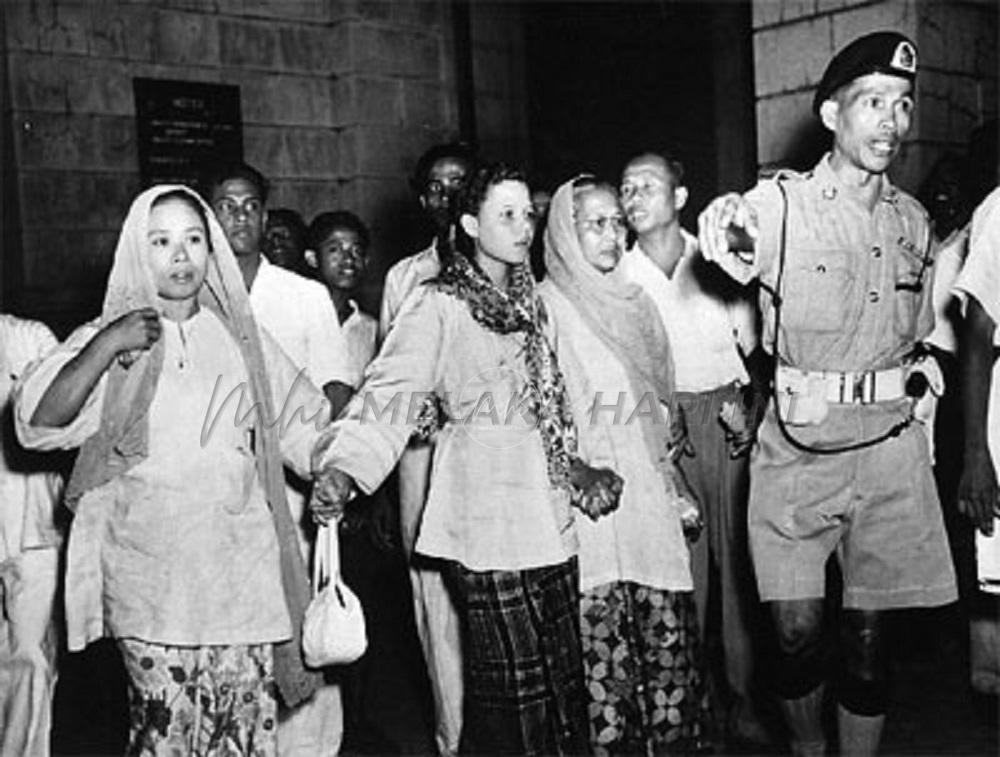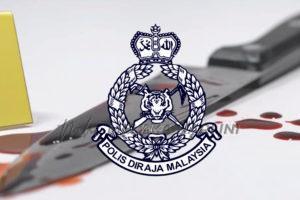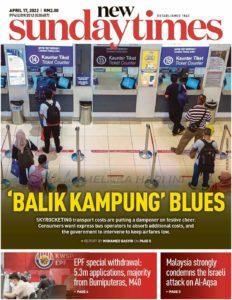
The Maria Hertogh Tragedy: Karim Ghani’s ‘moving spirit’
The Tamil newspaper, Malaya Nanban, founded in 1940, was published by the Muslim Publishing House and was supported by the Chulia Muslims. Its editor was Karim Ghani, a man with a sense of mission for Islam, and in resisting colonialism. He dreamt the formation of a ‘Greater Islamic Nation’ around the Malay Archipelago. Karim looked forward to a Muslim Malaya, mindful of the birth of Pakistan and Indonesia independence.
Karim used journalism, through his newspapers, as the medium for expressing his thoughts and ideas. The other two were the weekly Dawn in English, and its Malay version, Sinaran. All three newspapers were the mouthpiece of “the pioneering reform movement in the Colony as well as in the Federation of Malaya.” Karim was fiercely anti-colonial. One instance was condemning the Dutch for interfering in Indonesia’s independence.
I have been reading several narratives on Maria Hertogh/Natrah/Nadra; and I noticed a name frequently mentioned, as if directing the story. The persona of Karim Ghani is woven throughout. To be fair, there were many other names like Ahmad Ibrahim (who would later become Attorney-General of Singapura and prominent legal scholar) and Dr. Burhanuddin al-Helmy. But the name Karim Ghani stood out, the master-mind of the plot.
This essay is based on accounts by Haja Maideen, author of The Nadra Tragedy: The Maria Hertogh Controversy (1989). The list of “Dramatis Personae” drawn up by the author also includes Taha Kalu (President of the Malay Nationalist Party, Karim Ghani’s confidante and a member of the Nadra Action Committee), Syed Ali Al-Attas (member of the Nadra Action Committee). and M.J. Namazie (Member of the Muslim Advisor Board in Singapura). Karim Ghani , President of the Muslim League, and Chairman of the Nadra Action Committee, was described by Haja Maideen as the ‘moving spirit’ throughout the agitation.
Meanwhile at 123 Serangoon Road, in a two-storey shophouse where the Muslim Publishing House was housed, a small group gathered, led by Karim Ghani to discuss on the subject of the tafsir of the Quran. The ground floor of the shop house was occupied by an old Heidelberg printing machine to bring out the Tamil daily Malaya Nanban. Karim’s office cum residence was upstairs. According to Haja Maideen, Karim was tall, slender with dark eyes, and unmanageable jet black hair , and would stare “with a hint of fanaticism at the people he spoke to.” Described as a linguist and a scholar, Karim has knowledge of and spoke four languages – Arabic, English, Tamil and Urdu.
Born in India, he spent most of life in Rangoon, where he became a Parliamentary Secretary when Dr. Ba Maw was Prime Minister. Later in the War, he arrived in Malaya to become a Propaganda Minister of what had been described as “the Indian Independence Government of S.C. Bose.” He was imprisoned when the British re-occupied Malaya, but subsequently released without trial.
According to Haja Maideen, the discussion at Serangoon then took an abrupt turn related to the ‘honour of Islam.’ This was on the Dutch government’s interference on Islamic marriage. Karim’s position was to advocate for the colonial government to give due respect to fundamental rights in Islam. He did not want to see Muslims clashing with secular laws. On 6th September 1950, Karim wrote an editorial criticizing the Singapore Standard for supporting the Laycock (Marriage) Bill. The Bill, tabled in the Singapore Legislative Council stated that the marriage of a person under sixteen years of age was prohibited regardless of religion. Karim strongly condemned the Bill as an intrusion into the Syariah. His spirit was that secular law should not regulate the institution of Muslim marriages.
Karim also realized the effectiveness of protests. He had a two-fold plan in mind. The first was to unite all Muslim organizations, and the second to organize a huge protest march in the event of an unfavourable judgement against Maria – referring to Huberdina Maria Hertogh’s marriage to Mansoor Adabi in early August of 1950. The Dutch girl was 13 years old, and he 22. There was growing concern among Malay-Muslims of the Dutch and English colonial government’s interference in the marriage.
Haja Maideen notes that the Muslim name given was Nadra. Karim spelt her name as Natra. Indonesian, Indian and Pakistani newspapers used the name Nadira. Maria’s foster mother, Aminah, in her affidavit called her Nadra. And her name appeared as Nadra in legal documents.
In the Serangoon Road gathering, the main issue raised was attempts by the colonial government to nullify the marriage in a secular court. They requested Karim to lead the Muslim community. Meanwhile, Karim started calling Muslim organizations to sought their views on the Nadra case. His random test among the Muslim public showed the community was behind him. The mounting confidence in Karim was confirmed when he telephoned Dr. Burhanuddin: “I am ready for the war.” Karim was to become “chief agitator” for Nadra.
Karim Ghani had “effective control” of both the organizations as well as the Malay-Muslim print media. He was conscious of shaping public opinion. He wrote repeatedly that “it would be pure humiliation if the validity of Islamic marriage was questioned in a secular court.”
He was detained for 15 months by the Special Branch on 18th December 1950. Fearing that he would resume his activities to incite Muslims in Singapura and Malaya, the British finally banished Karim to Karachi, Pakistan in 1952. There, the ‘moving spirit’ continued his anti-colonial writings and publications; but felt alone in the wilderness. He passed away not long after. His presence lingers on in the Nadra story.
#####
Langgani saluran Telegram kami untuk dapatkan berita-berita yang terkini.


